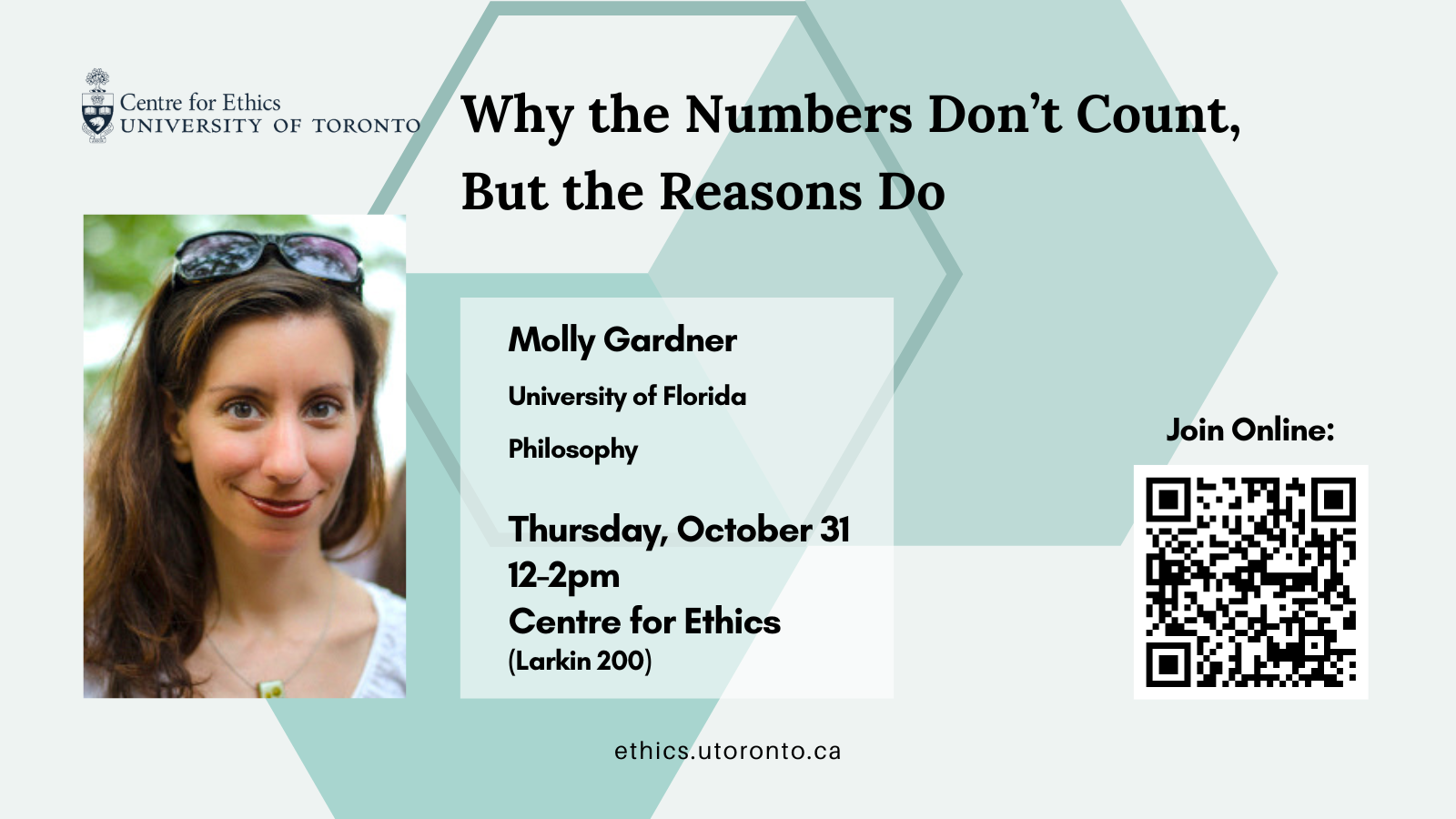 ► To stay informed about other upcoming events at the Centre for Ethics, opportunities, and more, please sign up for our newsletter.
► To stay informed about other upcoming events at the Centre for Ethics, opportunities, and more, please sign up for our newsletter.
Why the Numbers Don’t Count, But the Reasons Do
The numbers problem arises in cases where we can save a large group of people or a small group of people, but we cannot save both groups. Famously, John Taurek (1977) has argued against the claim that we ought to save the larger number. Taurek’s judgment runs contrary to common sense, but he is right that there are difficulties with various attempts to justify the judgment that we ought to save the larger group. The consequentialist appeal to aggregation seems to stand in tension with the principle that we ought to respect the separateness of persons. Frances Kamm (2005) and Thomas Scanlon (1998) argue that we can justify saving the larger number without appealing to aggregation. Nevertheless, their approach does not explain the significance of numbers in trolley cases. In this paper, I offer a new solution to the numbers problem. I reject the claim that if the separateness of persons matters, then aggregation is impermissible. Instead, I argue that we can aggregate and respect the separateness of persons, as long as we aggregate reasons for acting, rather than gains or losses to individuals. This approach, which I call the “aggregating reasons view,” not only solves the numbers problem but also yields a surprising solution to the trolley problem.
► This event is hybrid. Join in person at the Centre for Ethics (Larkin Building room 200) or online here.

Molly Gardner
Philosophy
University of Florida
Thu, Oct 31, 2024
12:00 PM - 02:00 PM
Centre for Ethics, University of Toronto
200 Larkin
